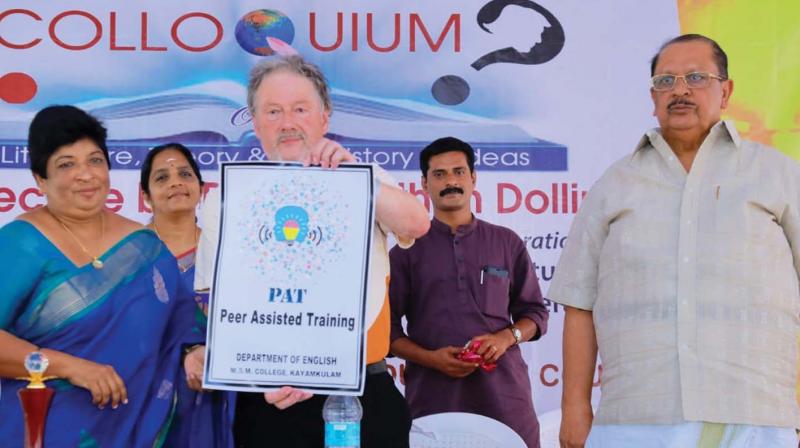British expert hails social changes in India

Alappuzha: A British expert has hailed the progressive social changes taking place in India through judicial interventions, including decriminalising homosexuality and adultery and allowing the entry of women to Sabarimala Ayyappa temple.
"It will take time for a conservative society to make progress through repeated interventions by the law of the land. For that you need meaningful communication with people through robust education," said Prof. Jonathan Dollimore, renowned British social theorist and author of 'Political Shakespeare' and other books.
Prof. Dollimore was here to attend the ongoing 'International Colloquium on Literature, Theory and the History of Ideas' organised by the Department of English, M.S.M College, Kayamkulam, in collaboration with the Centre for Cultural Studies, University of Kerala, and the Kerala State Higher Education Council (KSHEC).
Prof. Dollimore told Deccan Chronicle on the sidelines of the colloquium that
dissent is part of an evolving society. "You can't change people overnight. You have to respect the people's culture and connect meaningfully with them who have different opinions and faith. For that, communication is crucial and and it is the foundation of change. When you work towards a progressive society, sometimes amazing things can happen and sometime terrible things. But it's necessary to try always," he said.
"There is much regression and conservatism in India which are largely colonial legacies. But, Kerala is a progressive state which has a strong Marxist political party. In terms of education and literacy, Kerala has come a long way. But many parts India witness violence and conflicts which are worrisome," he said.
He welcomed the Supreme Court ruling legalising homosexuality and said, "when I was writing the book 'Sexual Dissidence' (1991), I realised that identity was crucial in understanding the history of sexual dissidence.
For example, the way in which we talk about prostitutes. When you describe the identity of someone, it could become a licence for others to control them, demonise and kill them. So identity formation is regressive. On the other hand, all the liberation movements, whether sexual or otherwise, embrace identity. In that case, identity is positive as well," he explained.
Prof. Dollimore, born in Leighton Buzzard in 1948, is the author of five books, including Radical Tragedy (1984), Political Shakespeare: Essays in Cultural Materialism (1985) (edited with Alan Sinfield), Death, Desire and Loss (1998) and Sex, Literature and Censorship (2001). He criticised the academic atmosphere in the universities in the U.S. and the U.K. and said academics there had become mere business and students customers. "The students and the faculty have to stand up and challenge the aberration," he said.
"In many developed countries, professional people don't talk to each other. They talk only online. So the world is becoming more divisive and it is paying the price. And it leaves so many people ignored and unheard," he said.

